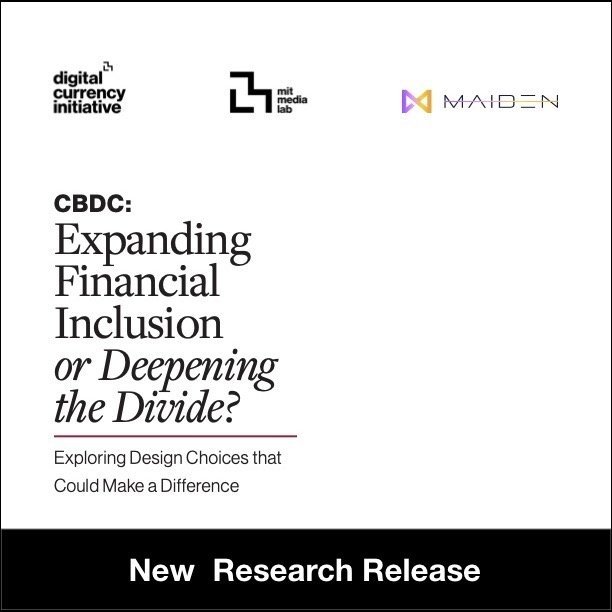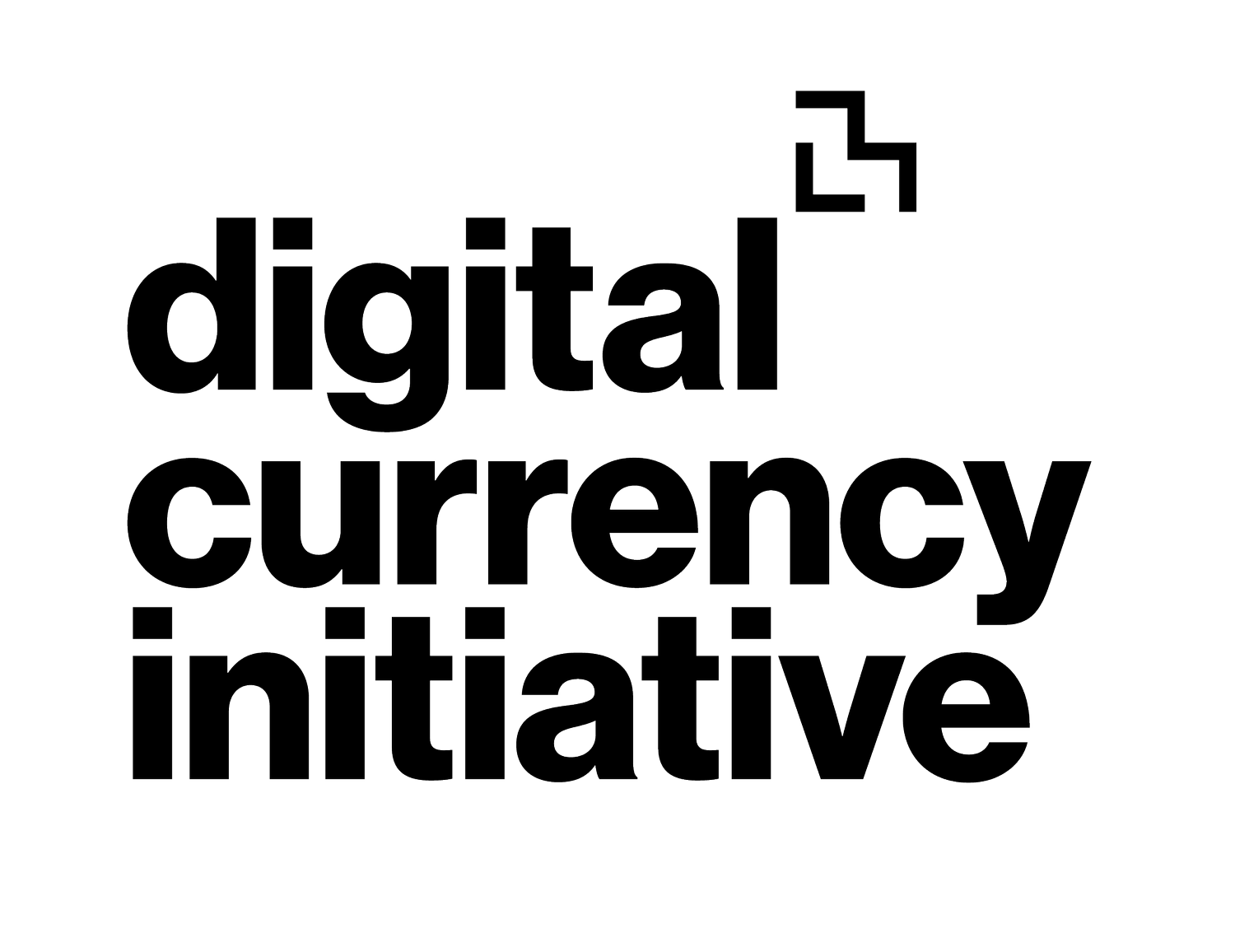
MIT Technology Review: “What's Next for Crypto”
“Although crypto enthusiasts may now be inclined to distance themselves from FTX, the episode reflects ‘the crypto we created,’ says Neha Narula, director of the Digital Currency Initiative at MIT.”

Engaging with regulators, insights from near and afar: an interview with Chris Calabia in The Axial Studio
DCI senior advisor Chris Calabia was interviewed on his experience as a regulator, his advice for innovation, and more. Chris worked for over twenty years at the Federal Reserve Bank of New York. Through that role and others, including as a Senior Advisor on regulatory policy at the Bill & Melinda Gates Foundation, Chris has worked closely with regulators from all of the world, providing him a unique perspective not only into the mindset of US regulators, but regulators in many different socioeconomic contexts.

The DCI at the 10th MIT Bitcoin Expo
On April 22-23, the MIT Bitcoin Club hosted the 10th MIT Bitcoin Expo. DCI director Neha Narula gave a keynote speech, Cryptoeconomic Systems managing editor Reuben Youngblom presented a talk titled "The 70 Megaton Gorilla: Addressing the PoW climate narrative," and DCI software engineer Sam Stuewe presented an asynchronous talk titled "Are We CBDC Yet? A Healthy Dose of Skepticism." Sam also mentored participants in the Expo's Hackathon.

The Future of Money at Consensus 2023
On April 27, DCI director Neha Narula spoke at Consensus 2023 on private and public money and the role of blockchain technology in future digital payment systems.

Project Hamilton at NSDI '23
James Lovejoy, of the Federal Reserve Bank of Boston, presented "Hamilton: A High-Performance Transaction Processor for Central Bank Digital Currencies" at NSDI '23. This paper was co-authored by Madars Virza, Cory Fields, and Neha Narula of the DCI and James Lovejoy, Kevin Karwaski, and Anders Brownworth of the FRBB, and it proposes the Hamilton transaction processor, one of the primary results of this collaboration.
The featured image on this post is by Thomas Hawk, and used under a Creative Commons license.

Blockchain Ethics: Ethereum, Web3, and Decentralized Morality with Reuben Youngblom
DCI researcher Reuben Youngblom gave a talk on blockchain ethics at ETHDenver. As blockchain becomes more impactful in the world, our obligation to make sure that we are proceeding in a responsible manner increases. But what does a responsible future look like?
The featured image on this post is by Timothy Actwell and used via a Creative Commons license.

DCI Newsletter Issue #15 - January-March 2023
In this issue:
The DCI at the MIT Bitcoin Expo, Consensus, Davos, and more.
Project Hamilton at NSDI '23.
Special thanks to DCI strategic advisor Shira Frank.
ICYMI: Two virtual events on CBDC, now available on demand.
And more!

In the Face of Fragility: Central Bank Digital Currencies
On Tuesday, January 17th at the World Economic Forum in Davos, Switzerland, Axios markets reporter Courtenay Brown and MIT Media Lab Digital Currency Initiative director Neha Narula considered the most pressing issues facing cryptocurrency today including how (and if) the industry should be regulated, how governments and financial institutions should interact with the sector, and how investments could be safeguarded. The View from the Top sponsored segment featured Ripple chief executive officer Brad Garlinghouse.

OMFIF: "CBDCs present new opportunities for handling disputes and fraud" by DCI Team Members
Potential designs may involve intermediaries in new and different ways
Central bank digital currencies potentially offer, in a digital form, the advantages of central bank money: settlement finality, liquidity and integrity. However, both offline and online commerce are susceptible to fraud and other kinds of disagreements. The existing techniques for managing fraud and disputes focus on giving users easy access to chargebacks, which relies on intermediaries to resolve disputes. Potential designs for CBDC may involve intermediaries in new and different ways, or may not use intermediaries at all, calling into question how to address fraud if CBDCs become widely used.

CoinDesk’s Money Reimagined: "Back to Basics After ‘Token Casinos’ Wreaked Havoc, With Neha Narula"
On this episode of “Money Reimagined,” Michael Casey, solo in Davos, Switzerland, on the sidelines of the World Economic Forum, speaks with Neha Narula, the director of the MIT Digital Currency Initiative to discuss the trends of both digitalization and innovation pertaining to stablecoins, digital currencies and the future of public money,

Axios Reception at Davos: Crypto’s Crossroads
On Tuesday, January 17th at the World Economic Forum in Davos, Switzerland, Axios markets reporter Courtenay Brown and MIT Media Lab Digital Currency Initiative director Neha Narula considered the most pressing issues facing cryptocurrency today including how (and if) the industry should be regulated, how governments and financial institutions should interact with the sector, and how investments could be safeguarded. The View from the Top sponsored segment featured Ripple chief executive officer Brad Garlinghouse.

CoinDesk names MIT one of the “Best Universities for Blockchain 2022”
A private research university established in 1861, the Massachusetts Institute of Technology (MIT) is one of the world’s most prestigious schools and ranked first in the QS World University Rankings in 2023 due to its academic and research excellence in multiple fields, including blockchain.

WBUR's Tales from the Crypto | Part I: Ukraine's NFTs and the 'Fyre Fest' of cryptocurrency
The Endless Thread team is excited to introduce a new mini-series: Tales from the Crypto, or three windows into the wild world of cryptocurrency. It's a landscape ripe for investors, gamblers, opportunists, and academic investigators — both online and offline. At every turn, our hosts and producers have turned to experts to make sense of this volatile, ever expanding terrain.
In the series' first installment, co-hosts Ben Brock Johnson and Amory Sivertson dive into a viral tweet about NFTs aiding Ukrainians with the war effort against Russia, as well as plans for a crypto island paradise that was never meant to be.

Nicolas Xuan-Yi Zhang, "A Multi-Currency Exchange and Contracting Platform"
The DCI’s Nicolas Xuan-Yi Zhang coauthored a paper at IMF on multi-currency exchange.
Cross-border payments can be slow, expensive, and risky. They are intermediated by counterparties in different jurisdictions which rely on costly trusted relationships to offset the lack of a common settlement asset as well as common rules and governance. In this paper, we present a vision for a multilateral platform that could improve cross-border payments, as well as related foreign exchange transactions, risk sharing, and more generally, financial contracting. The approach is to leverage technological innovations for public policy objectives. A common ledger, smart contracts, and encryption offer significant gains to market efficiency, completeness, and access, as well as to transparency, transaction and compliance costs, and safety. This paper is a first step aiming to stimulate further work in this space.

MIT, Maiden Labs examine CBDC inclusiveness issues in report from 4 countries
The Massachusetts Institute of Technology (MIT) Digital Currency Initiative (DCI) and associated organizations marshaled a sizable team of researchers in four low- and middle-income countries — India, Indonesia, Nigeria and Mexico — to study inclusion issues related to retail central bank digital currency (CBDC) design. They released the results of their 15-month research project on Jan. 13.

DCI Newsletter Issue #14 - September-December 2022
In this issue:
Join the DCI for a new research release on financial inclusion
Call for papers for the next issue of Cryptoeconomic Systems
DCI paper accepted at NSDI
And more!

DCI Newsletter Issue #13 - June-August 2022
In this issue:
Join the DCI at AFT'22
CBDC and financial inclusion research release date announced
Call for papers for the next issue of Cryptoeconomic Systems
A fond farewell to Tadge Dryja
And more!

The MIT Digital Currency Initiative bids farewell to Tadge Dryja
Five years ago, I was in the Boston area for a week and I hung out at the DCI.
It wasn't much of a space back then—really more like a closet. But there were ethernet ports in the walls, assorted cables, and computer accessories, and a couch with occasional undergrads hanging out, coding, or discussing the finer points of cryptocurrencies. It was welcoming, and a lot of fun. I brought a computer and started working, and talking to people about Bitcoin, and helping some students with their projects…

CoinDesk’s Money Reimagined "The Coming Digital Currency War
A Consensus panel from Austin, Texas, "Money Reimagined" host Michael Casey starts off the introductions of an important discussion with Emily Parker, CoinDesk's executive director of global content; the Honorable J. Christopher Giancarlo, dubbed “CryptoDad,” served as 13th Chairman of the United States Commodity Futures Trading Commission; and Neha Narula is the Director of the Digital Currency Initiative at the MIT Media Lab, to discuss the social and geo-political implications of the rise of international competition between central bank digital currencies, stablecoins and native crypto currencies.

MIT Technology Review: “The MIT researcher who helps senators understand digital currencies“
Last summer, a special subcommittee of the US Senate met remotely to weigh the benefits of launching a central-bank digital currency, or CBDC—something that could, if optimally designed, transform the US financial system, making it more accessible to more citizens. For senators staring intently at their laptops, this was basically the first day of digital-currency school. And to introduce them to this highly technical world, the first witness that Senator Elizabeth Warren called was MIT Digital Currency Initiative director Neha Narula.
